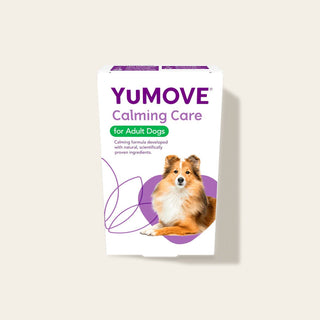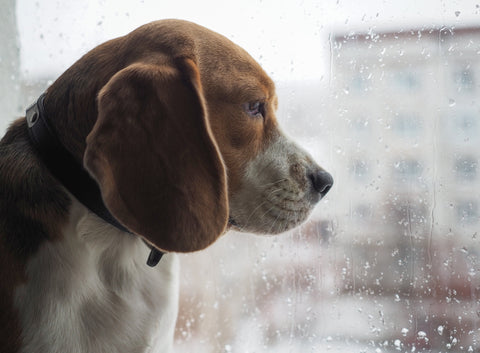
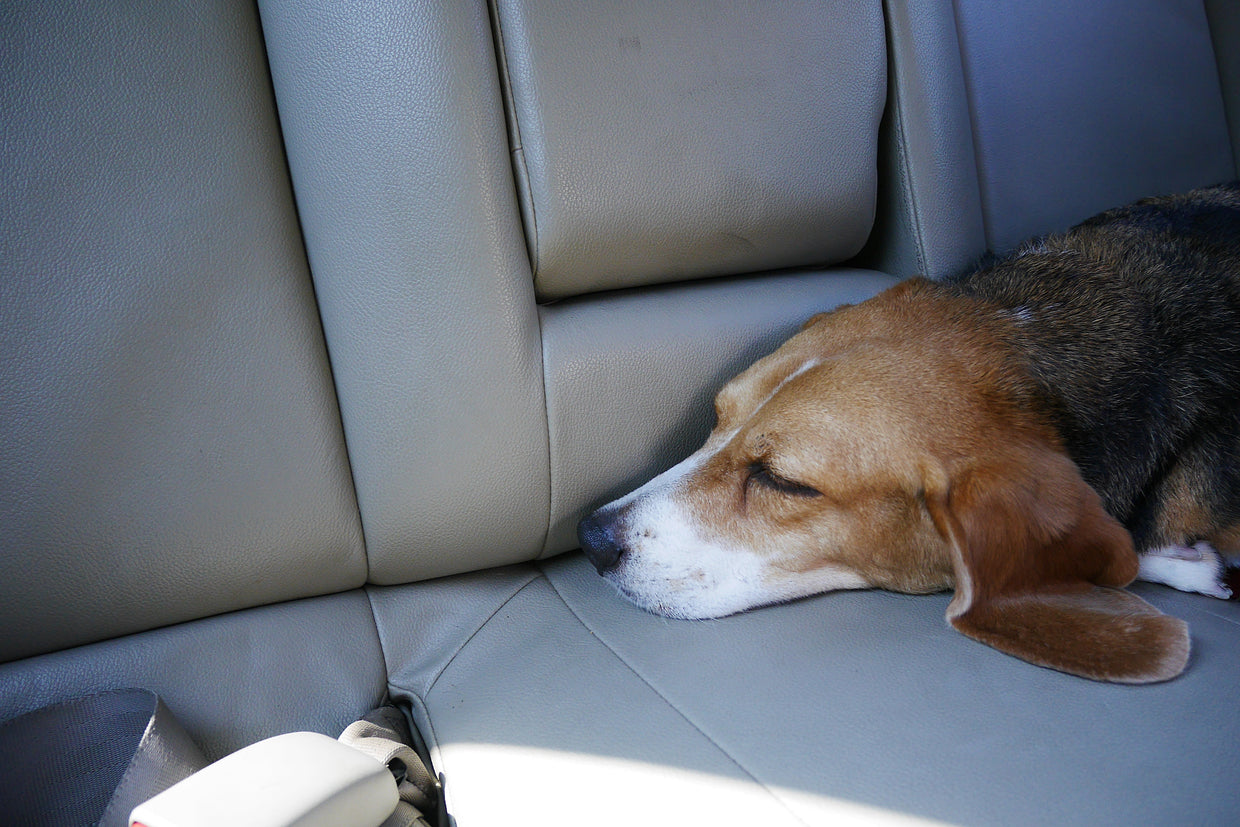
Motion sickness vs anxiety in dogs
At YuMOVE, we know that many dogs love car journeys. In fact, some dogs get tail-waggingly excited at just the sound of your keys jingling in your hands. But for a small minority of dogs, car rides are anything but enjoyable.
They show their displeasure in a number of ways. And sometimes they even vomit because they’re so anxious about it. But how can you tell if your dog is suffering from motion sickness, or if they’re just stressed about being in a car? Let’s take a closer look at the YuMOVE dog supplements you need along with advice for your pup...
Can dogs get car sick?
Dogs can definitely suffer from motion sickness. But it’s more likely to affect young puppies than adult and senior dogs. As your dog grows older, they’ll probably outgrow their motion sickness. Although, this isn’t true for every dog and some will need further help.
Motion sickness vs travel anxiety

Motion sickness
Motion sickness is a condition caused by repeated movement when travelling. The reason behind it is that the inner part of your dog’s ear doesn’t work properly to maintain a sense of balance. This unbalanced sensation causes wooziness and nausea.
Travel anxiety
Sickness during car rides is more often caused by emotional reasons. In fact, a fear of car journeys is the most common psychological problem in dogs, second only to separation anxiety in dogs. The trouble with travel anxiety is that it causes the exact same symptoms as motion sickness, so it’s hard to tell if the problem is emotional or physiological.
The signs of motion sickness and travel anxiety in dogs
Just like us, some dogs make good travel companions, while others get nervous and have an upset tummy. But what are the signs of stress during travelling?
- Extreme drooling, panting and swallowing
- Restlessness
- Excessive yawning
- Trembling
- Sulking
- Retching or vomiting
Sometimes just the thought of getting into the car is enough to trigger your dog.
How to help reduce car sickness in dogs
Before taking a trip to the vet, here are a few things you can try at home:
- Slightly open the car windows. Fresh air may help alleviate their discomfort.
- Keep the car cool. A warm, stuffy environment can make things worse, not to mention the smell if your dog does throw up.
- Don’t feed your dog before travelling. Avoid giving them anything to eat a few hours before your car journey as food in the gut is likely to increase discomfort.
- Consider keeping your dog in a car crate. And cover the sides and back so they can only see what’s in front of them.
- Start with short journeys. Take your dog on quick five-minute car rides to gradually build up their tolerance for travelling.
- Use a travel harness. This can make them feel safe and secure. Just so you know, this can also make them feel restricted, so only use one if your dog’s comfortable with it.

Remedies for motion sickness in dogs
The remedy for motion sickness is quite a simple one: medication and supplements. Nausea treatments can reduce the feeling of queasiness and can even stop vomiting altogether.
YuMOVE Digestive Care for Dogs is a unique mix of prebiotic and probiotic bacteria, specifically developed to support your dog’s digestive health and calm sensitive tummies. It works by keeping stools firm, reducing wind and increasing 'good' bacteria in the gut. Looking for something stronger? YuMOVE Digestive Care PLUS is our veterinary strength version. It’s gentle but provides faster-acting support for your dog’s digestion.
Our regular YuMOVE Digestive Care for Dogs comes in the form of a tasty tablet that can be given alongside meals or as a treat. And the PLUS version is a sachet which can be sprinkled over your dog’s food for as long as you need. It can also be mixed with warm water to form a paste.
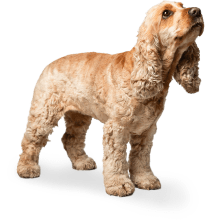
Tips to reduce travel anxiety in dogs
When it comes to travel anxiety, the solution isn’t so clear. You’ll want to try to make the car journey as pleasant and peaceful as possible. Try the following steps to calm down your anxious canine:
- When at home, make your dog comfortable by playing with them, giving them attention or feeding them their favourite treat
- After a couple of days, try doing this next to your car, with the door open
- From there, place your dog’s favourite toys or blanket onto the car seat
- Hopefully your dog will be happy enough to get into the car on their own
- If your dog seems comfortable with it, turn on the car’s engine, but don’t drive anywhere
- Over time, your dog will start to disassociate cars with nervousness
- Try taking your pup on a short car journey to somewhere they love – like the park or to a friend’s house
- Repeat this a few times until you think your dog has become more comfortable with car rides
There can be many different triggers for your dog’s stress, car rides being just one of them. That’s where YuMOVE Calming Care for Dogs comes in. Our all-natural calming supplements have been specifically formulated for nervous pets. They come in a tasty tablet or a daily chew and work by easing anxiety and encouraging calm behaviour.
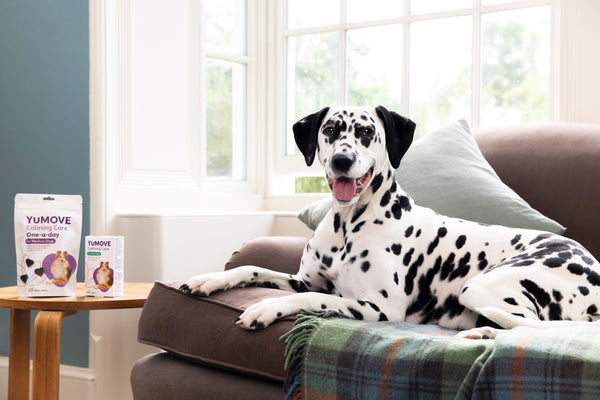
What not to do
- Don’t make a fuss if your dog vomits
- Don’t pull over to clean your car (this tells your dog that vomiting will stop the car)
- Never raise your voice at your dog, as this only makes the problem worse
When to contact your vet
Over time, motion sickness can get worse if the problem isn’t addressed. If your dog is showing signs of sickness and you’re unsure how to fix it, always seek the advice of your vet before things get worse.
For more tips on how to enjoy your travels with your dog, check out our blog on safe car travel for dogs.
